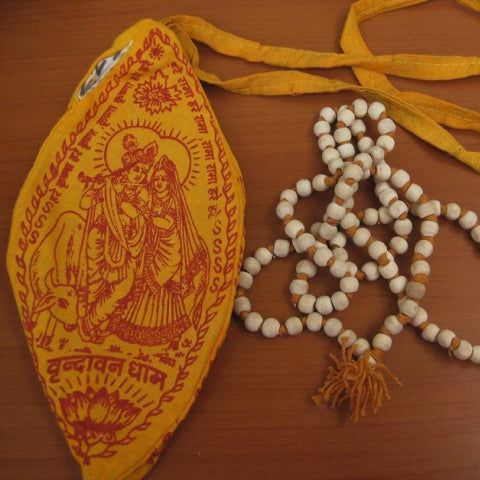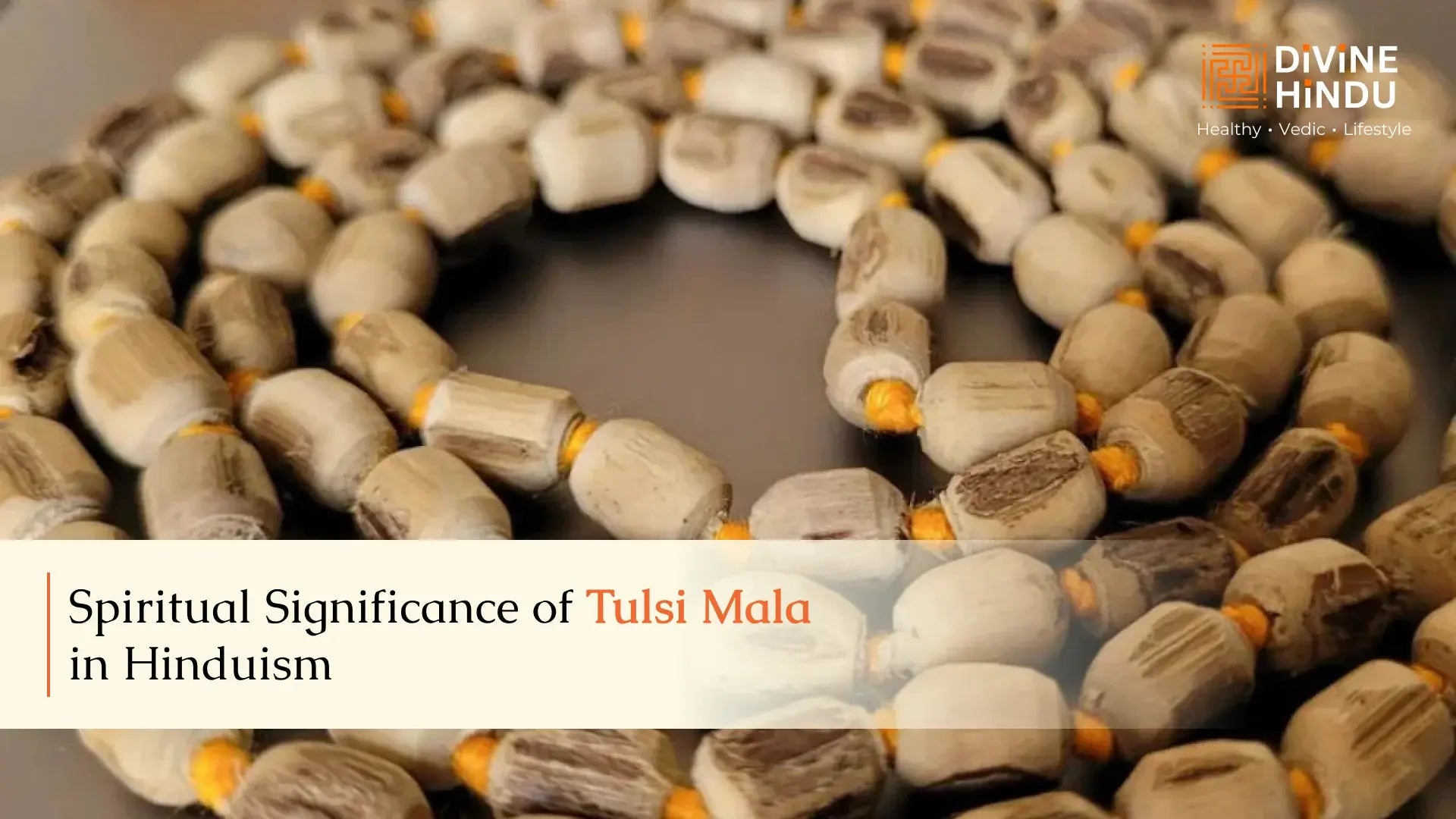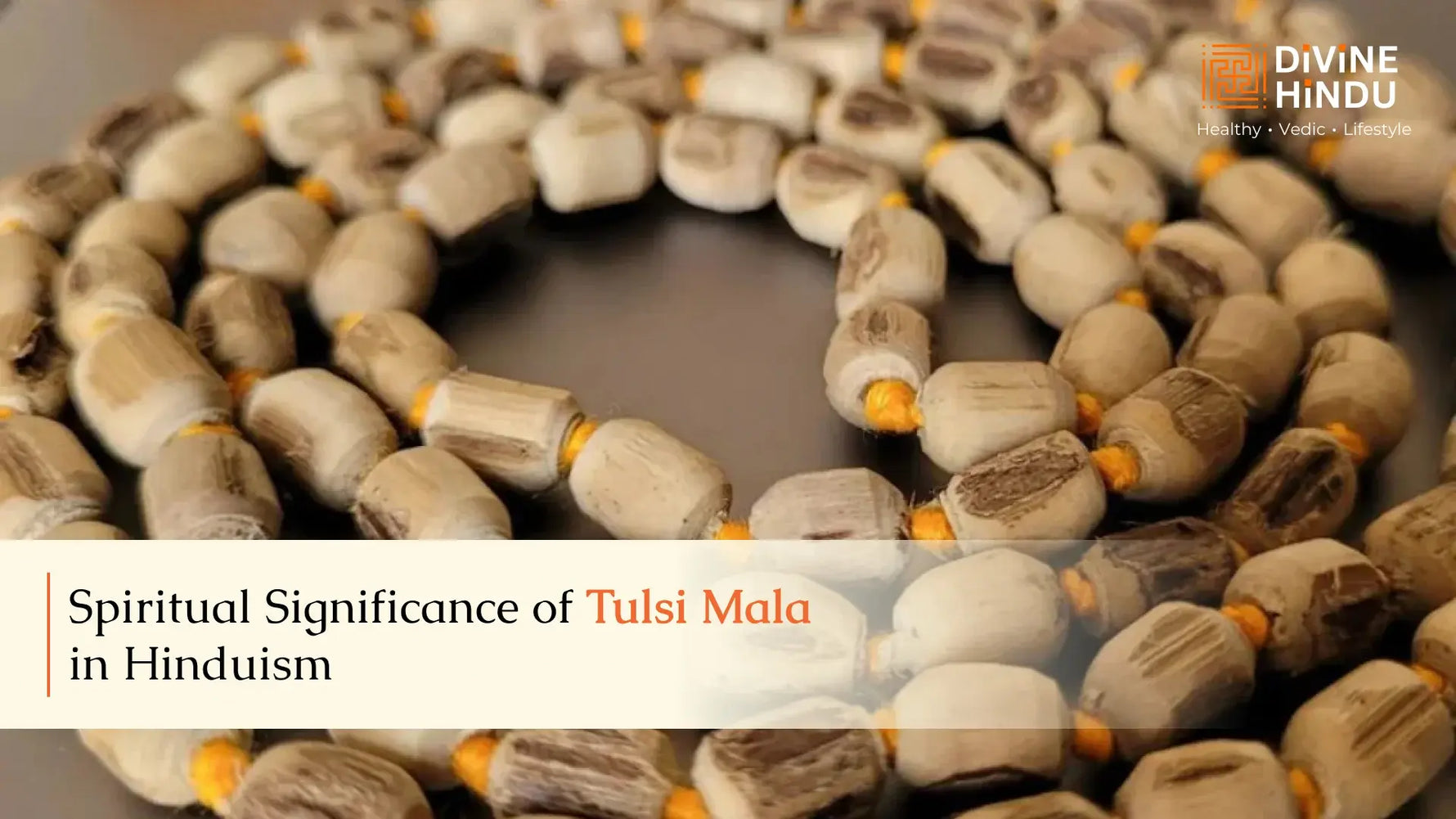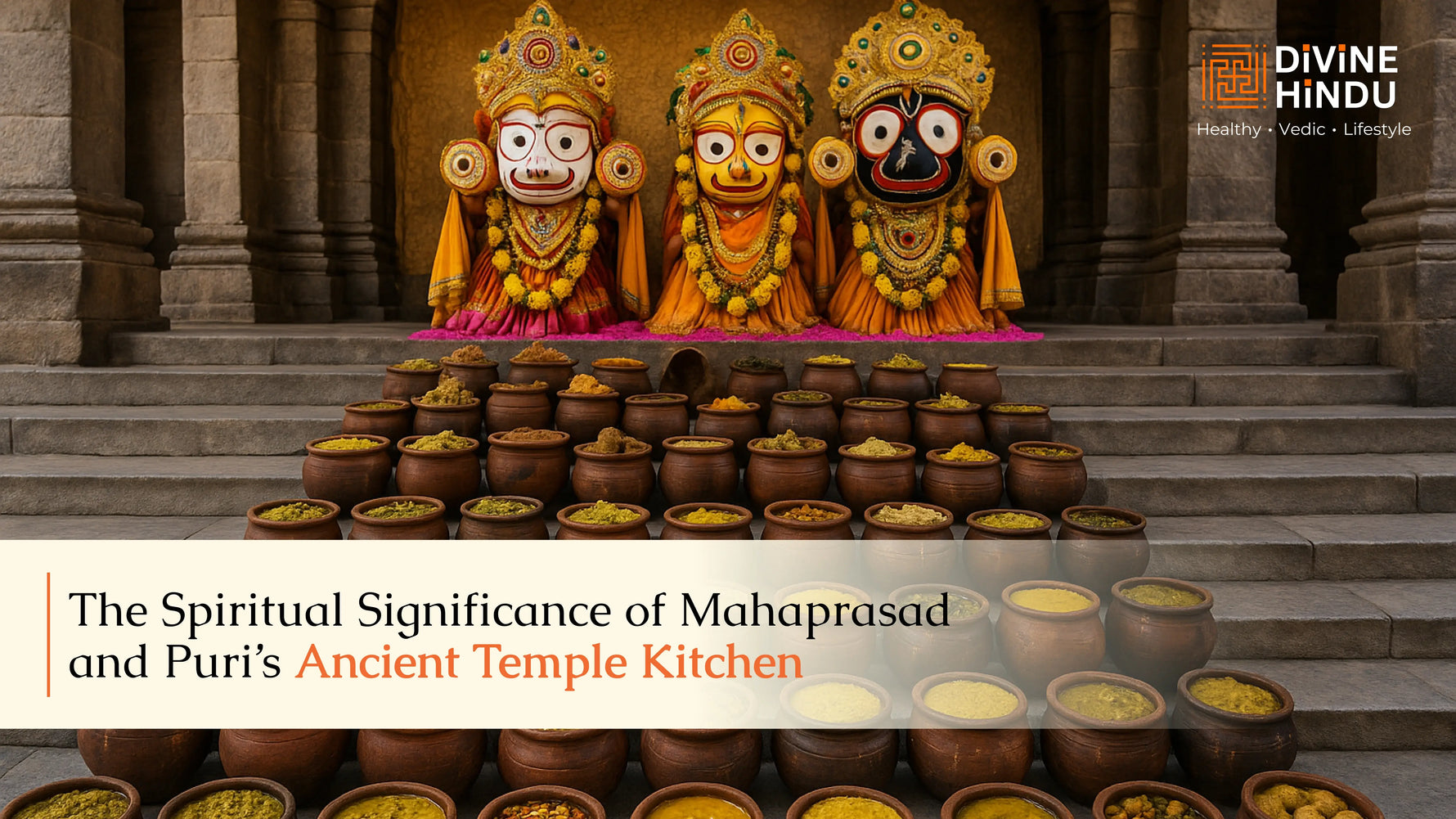What is Tulsi (Holy Basil)?
Tulsi, or Holy Basil, is a sacred plant in Hinduism and a traditional medicinal plant from Ayurvedic, traditional Indian medicine. While tulsi is in the same family as sweet basil, the flavor of tulsi is much stronger and has more of a clove flavor. Its medicinal value is why it is appreciated.
Tulsi is sacred as it is a part of Hindu tradition and is usually grown in temples and the backyards of Hindu homes.
What Is The Significance of Tulsi at Home?
Tulsi has significant spiritual and practical value in Hindu households:
Spiritual Value:
- Tulsi is regarded as the earthly manifestation of Goddess Lakshmi and, in some traditions, Goddess Vrinda.
- The Tulsi plant is believed to purify the home and generate positive energy.
- Daily worship of Tulsi is thought to bring blessings, peace, and protection to the household.
- Many families perform morning and evening prayers (aartis) dedicated to the Tulsi plant.
What Is The Significance of Tulsi Beads?
Tulsi beads, made from the sacred wood of the tulsi plant, have special spiritual importance in the Hindu tradition, especially for Vaishnavites. Also, there are several types of tulsi mala, tulsi kanthi mala, tulsi japa mala, and Shree Ram Tulsi Mala pendant.

Spiritual Importance:
- Treated as sacred to Lord Vishnu and Krishna and viewed as an important plant
- It is said that when one wears tulsi beads, they are protected and blessed by the divine.
Religious Use:
- Typically used to chant mantras, specifically the Hare Krishna mantra and Vishnu mantras.
- Each bead is thought to symbolize one repetition while using the beads for japa.
Cultural Traditions:
- Particularly sacred within ISKCON and Gaudiya Vaishnavism traditions.
- Generally given as a holy gift for use in a festival ceremony .
Tulsi Mala Benefits
Tulsi mala has a wide range of benefits on all levels: spiritual, physical, and mental.
Spiritual Benefits:
- Brings spiritual protection and purifies the mind and body.
- Allows for spiritual growth and devotion to Lord Krishna.
Mental and Emotional Benefits:
- Increases concentration and creates a calm state of mind suitable for deep meditation.
- Creates peace and calmness in the mind.

Family and Social Benefits:
- Creates a calm living environment suitable for peaceful living and encourages a spiritual aura in the family.
- Improves the luck of married women and brings calmness to relationships.
Karmic and Astrological Benefits:
- It is said to clear bad karma from previous lives, increase good vibrations and attract good fortune.
- The important part is wearing the mala with true devotion and faith because the benefits will only materialize if the mala is worn with true spiritual practice.
What Is The Spiritual Significance of Tulsi?
Tulsi has a special spiritual meaning in Hinduism, bridging the world of the physical and spiritual:
Divine Presence:
- The earthly manifestation of Goddess Lakshmi, the wife of Lord Vishnu
- Also known as the devotee gopi, Vrinda Devi of Lord Krishna
Sacred Significance:
- Representing bhakti and surrender to God.
- Symbolizing the feminine divine who nurtures one on the spiritual path.
Purification:
- Purifies the mind, body, and spirit of devotees.
- Cleanses the environment of negative energy.
- Enhancing Memorization of Prayer and Mantras:
- Increases prayer and mantra chanting.
- Essential herb in most Hindu religious ceremonies and rituals.
Sacred Connection:
- Represents the perfect ideal of devotional love between the devotee and the deity.
- Symbolizes the nurturing dimension of divine feminine energy.
What Does Tulsi Represent in Hinduism?
The belief systems of Hinduism, Tulsi comes to symbolize multiple important spiritual ideas and divine attributes:
The Divine Feminine Energy:
- Embodies a pure, devoted feminine energy (Shakti)
- Represents the ideal devotee who completely surrenders to the divine
Sacred Purity:
- Represents all things that are spiritual purity and sanctity
- Represents the purity of mind, body, and soul
Devotional Ideas:
- Represent unwavering faith, loyalty, and dedication to God
- Represents Selfless seva and sacrifice
Divine protection:
- Symbolizes the divine shield of spiritual protection against evil forces
- Represents divine grace protecting the devotee at all times
Spiritual Transformation:
- Represents the journey from material to spiritual consciousness compared to ordinary life
- Represents the transformation of ordinary life into sacred living
Who Cannot Wear Tulsi Mala?
According to the customs that dictate the behavior of people employing traditional Hindu and Vaishnavite guidelines, those who eat tamasic food such as onion and garlic, and non-veg, are told not to wear the Tulsi Mala because of the consternation that these types of food are seen to create in terms of spiritual practices. When we speak of the Tulsi mala, it is assumed that initiated devotees wear the mala. However, uninitiated devotees who are chanting the Maha Mantra have followed the four regulative principles and been conscious of onion/garlic and committed to abstaining for a definite period of about 6 weeks while intending to follow the rules unwaveringly may also wear the mala.
It would be best for those not prioritizing some level of spiritual purity, especially regarding eating habits regarding meat, onions, and garlic, not wearing the sacred tulsi mala, as some level of spiritual discipline and commitment to staying in a protective space is involved with the mala.
Rules and Do's and Don'ts For Wearing It
Rules and Guidelines for Wearing Tulsi Mala:
Do's:
- Observe the regulative principles of no meat and no gambling.
- Avoid garlic, onions, coffee, and tea.
- Only honor Prasadam
- Engage in daily chanting of the Hare Krishna mantra.
- Wear it at any time you are praying, meditating, or worshipping.
- Once you put on a mala, it should be worn and not removed, as it is a statement that you are aligned with the will of Lord Hari.
Don'ts:
- Do not wear while sleeping or using the toilet
- Avoid eating meat and any toxins
- Do not take a casual approach to taking it off if you have committed to wearing it
- Do not wear a mala just for a fashion statement or decoration
- Do not touch the mala with unclean hands
- Do not lend or allow others to wear your mala.
Conclusion
In Hindu belief, Tulsi or Holy Basil is a sacred entity, not just a plant. It is designated as a divine entity (deity), the guardian spirit of the household and nature, and the sacred influence of devotion. Some devotees worship it every day in the household, and devotees wear it in mala beads to gain the spirituality that is associated with it. Tulsi acts as a medium to receive the divine energy of, or stemming from, Lord Vishnu, together with Goddess Lakshmi. It purifies life, the environment, and the process of spiritual growth to God's realization, as well as health and harmony.
The power of Tulsi is powerful only in so far as the person who knows it and who keeps it sacred, worships it sincerely and devotedly, and knows exactly the zees, which is an important guided principle related to maintaining a disciplined sattvic lifestyle, as well as understanding the dos and don'ts concerning Tulsi, and what ensures purity, and what then allows the blessings of it.
You May Also Like :
The Spiritual Significance of Mahaprasad and Puri’s Ancient Temple Kitchen
How to Balance Chakras Daily : A Beginner's Guide to Energy Healing
Where to Buy Original Karungali Malai Online – Benefits & Guide
What Is The Significance of 108 in Hinduism?
Lord Jagannath's Rath Yatra 2025: A Spiritual Journey of Tradition


















